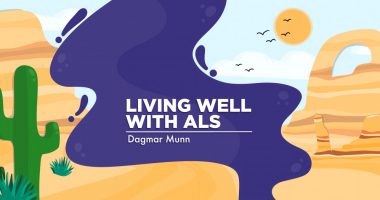Advanced ALS Patients More Vulnerable to Broken Heart Syndrome, Study Suggests

Patients with amyotrophic lateral sclerosis (ALS) in advanced stages who suddenly experience worsening shortness of breath and chest discomfort are likely to have Takotsubo cardiomyopathy, a condition also known as broken heart syndrome.
Based on their findings, South Korean researchers studying the hearts of ALS patients urge physicians to consider Takotsubo cardiomyopathy when evaluating a patient with this condition. Their study, “Takotsubo cardiomyopathy in amyotrophic lateral sclerosis,” appeared in the Journal of the Neurological Sciences.
Broken heart syndrome is a temporary heart condition brought on by physical or psychological stress, such as surgery or — as the name implies — the death of a loved one. Earlier studies have demonstrated that Takotsubo can occur in patients with ALS, but no studies have examined how common it is or what the prognosis of an ALS patient with the condition looks like.
In the newest study, scientists at Seoul National University Hospital analyzed the records of 64 ALS patients who had an echocardiographic (ECG) heart exam between 2011 and 2015. Nine of them (14.1 percent) had been diagnosed with broken heart syndrome. Patients were on average 61.3 years old and had been sick for 51.5 months before they were diagnosed with the condition. All had a bulbar or cervical onset of disease.
In addition, all nine patients were in advanced stages of ALS with difficulties breathing to various degrees. They all experienced a sudden worsening in their breathing capacity, and had an abnormally rapid heart beat when examined. Two of the patients described chest discomfort very similar to that experienced during a heart attack.
Six of the patients had severely low pressure, which required treatment. Three lost consciousness, and two went into cardiac arrest.
Seven patients were treated at the intensive care unit for an average of 9.9 days. Most patients were successfully treated, with six patients regaining a normal heart function at a short-term follow-up. Two patients recovered partially, and the study did not provide information about the last patient.
Although broken heart syndrome is not considered life-threatening, the researchers noted that ALS patients may have worse outcomes than other patient groups, particularly if they are in advanced stages of the disease.






